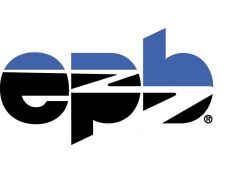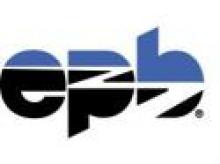This is the first in a series of posts by Rita Stull -- her bio is available here. The short version is that Rita has a unique perspective shaped by decades of experience in this space. Her first post introduces readers to the often misunderstood concept of the Right-of-way, an asset owned by the citizens and managed mostly by local governments.

In the process of knitting a baby blanket, a whole ball of yarn became tangled into this mess. . . .
. . . reminding me of the time, in the early eighties, when I was the second cable administrator appointed in the U.S., and found myself peering into a hole in the street filled with a similar looking mess—only made of copper wires, instead of yarn.

Why talk about yarn and copper wire in the same breath on a site dedicated to community broadband networks? Because it was the intersection of ‘art and cable’ that got me started in the ‘telecommunications policy’ arena, the same kind of thinking that continues today in our tangled telecom discussions: Is it content or conduit, competitive, entertainment, essential, wireless, landline, gigahertz, gigabits?
I transferred from the Recreation Department to launch the city’s cable office as an experienced government supervisor with a Masters in Theater. My employer and I thought cable TV was the ‘entertainment’ business and I had the requisite mix of experience and skills to manage one of the first franchises awarded in 1981.
Yikes. Imagine my surprise on discovering that cable was a WIRE LINE UTILITY using PUBLIC LAND, which each citizen pays TAXES to buy, upgrade and maintain! And, our three-binders-thick, cable franchise was a ‘legal contract’ containing the payment terms for use of our public rights-of-way, as well as protection of local free speech rights. I was thirty years old, a property owner who had never thought about who owned roads, sidewalks and utility corridors.
Rights-of-way are every street plus about 10 feet of land on each side. That land belongs to everyone in the community. Rights-of-way are a shared public asset—sometimes called part of our common wealth.








 Harold DePriest recognized the power of AT&T and Comcast in the Legislature, but vowed not to give up.
Harold DePriest recognized the power of AT&T and Comcast in the Legislature, but vowed not to give up.



